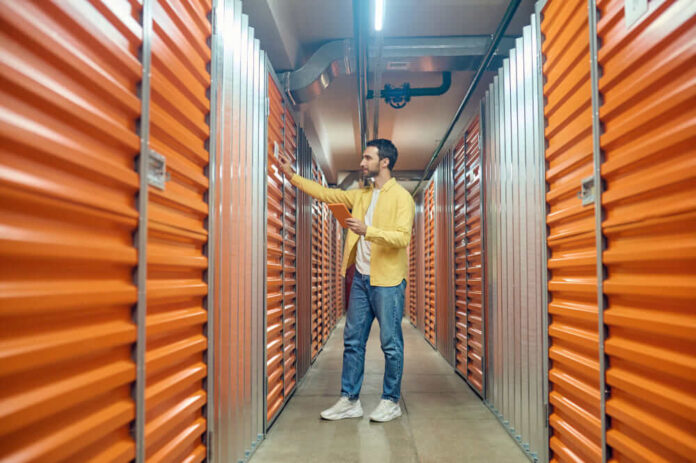Embarking on a startup journey is an exhilarating experience. Entrepreneurs are filled with ideas, passion, and a drive to make their dreams a reality. However, the practical aspects of running a business, such as finding a place to store inventory, equipment, or documents, can quickly become overwhelming.
This is where storage units come into play as an unexpected but valuable ally. These units offer a cost-effective and efficient way to manage space needs without the commitment of a long-term lease or the hefty price tag of office space.
For a startup, every penny counts, and every decision can impact the growth trajectory. By utilizing storage units, startups can ensure they have the space they need to operate smoothly without diverting critical funds from other essential areas. It’s a simple solution that can make a big difference in the early stages of a business.
In this post, we will show you some unique ways renting storage units can come as a huge benefit to startups. Just keep reading!
How Startups Can Benefit From Renting Storage Units
#1: Saving on Overhead Costs with Storage Units
One of the challenges faced by startups is managing expenses, especially when it comes to overhead costs like rent and utilities. Traditional office spaces or warehouses can sometimes be too expensive for a budding venture, making it difficult to allocate funds for growth and innovation.
In such situations, renting storage spaces can be a viable alternative. For instance, consider entrepreneurs who opt for self-storage units in Phoenix. They benefit from a flexible solution that meets their need for space without burning a hole in their budget.
These storage units are often equipped with features such as climate control, security, and 24/7 access, making them a convenient choice. By choosing such a cost-effective alternative, startups can invest more in product development, marketing, and other vital aspects that contribute directly to their success.
#2: Efficient Inventory Management for Startups
Keeping track of inventory is vital for startups, especially those dealing in retail or e-commerce. Proper inventory management ensures smooth operations and customer satisfaction. Utilizing a storage unit for inventory purposes can not only save costs but also help in maintaining an organized system.
Here are some ways storage units can assist in effective inventory management:
- Adaptability: As your business grows, you can easily switch to larger storage spaces.
- Security: These units typically offer robust security features, ensuring the safety of your stock.
- Accessibility: Most storage facilities allow round-the-clock access, facilitating ease in operations.
- Climate Control: Sensitive inventory can be preserved in optimal conditions.
- Cost-Effective: Renting a storage unit is often more affordable than commercial spaces.
According to the U.S. Small Business Administration, efficient inventory management is crucial for the growth and sustainability of small businesses. By leveraging storage units, startups can streamline their inventory processes without hefty investments.
#3: Balancing Storage Costs and Business Growth
Startups are always on the lookout for ways to smartly invest their money. One of the aspects often overlooked is the balance between storage costs and business growth. Finding the right balance can significantly impact a startup’s budget and its ability to grow seamlessly.
Imagine a small e-commerce startup selling handmade crafts. Initially, they might operate from a home office, but as orders increase, so does the need for space. Renting a commercial property might seem like a logical step, but it can be quite expensive.
On the other hand, opting for a storage unit can be a cost-effective solution that provides the necessary space without breaking the bank.
By strategically choosing a storage unit, the startup can ensure there is enough room to store inventory while still keeping costs low. This financial cushion can then be used in other areas, such as marketing or product development.
#4: Optimizing Storage for Efficient Operations
For a startup, optimizing operations is crucial for success. Streamlining how you manage your inventory in a storage unit can save both time and money. Let’s consider how incorporating some best practices can assist in making the most out of your space.
- Categorize and Label: Organize your items and label them clearly. This can speed up the retrieval process.
- Utilize Vertical Space: Make sure to use shelves or stacking methods to make full use of the space available.
- Regular Checks: Periodically reviewing your inventory ensures that it’s up to date and helps to avoid overstocking.
#5: Boosting Visibility Through Creative Storage Solutions
A unique aspect of running a successful startup is the integration of every aspect of your business. An often-overlooked area, storage, can actually play a pivotal role in this synergy.
Consider this: a well-organized and creatively utilized storage unit can serve as an excellent backdrop for your product photoshoots or promotional videos. It’s all about making the space work for you.
Visual content is a powerful tool in marketing, and having an aesthetically pleasing and well-organized space can really help your products shine. A storage unit, with its ample space and potential for customization, offers a canvas for creating eye-catching promotional content.
So, while you’re storing your products or materials, consider how the same space could contribute to making your brand stand out in the crowded marketplace. It’s a win-win solution that enhances both your operational efficiency and your marketing strategy.
Final Note
In the bustling journey of entrepreneurship, savvy storage solutions can be an unexpected ally. It’s not just about tucking away your stock; it’s a strategic move that can boost efficiency, save costs, and even enhance your brand’s image.
By thinking out of the box, literally, startup owners can turn simple storage units into assets that propel their business forward.
















